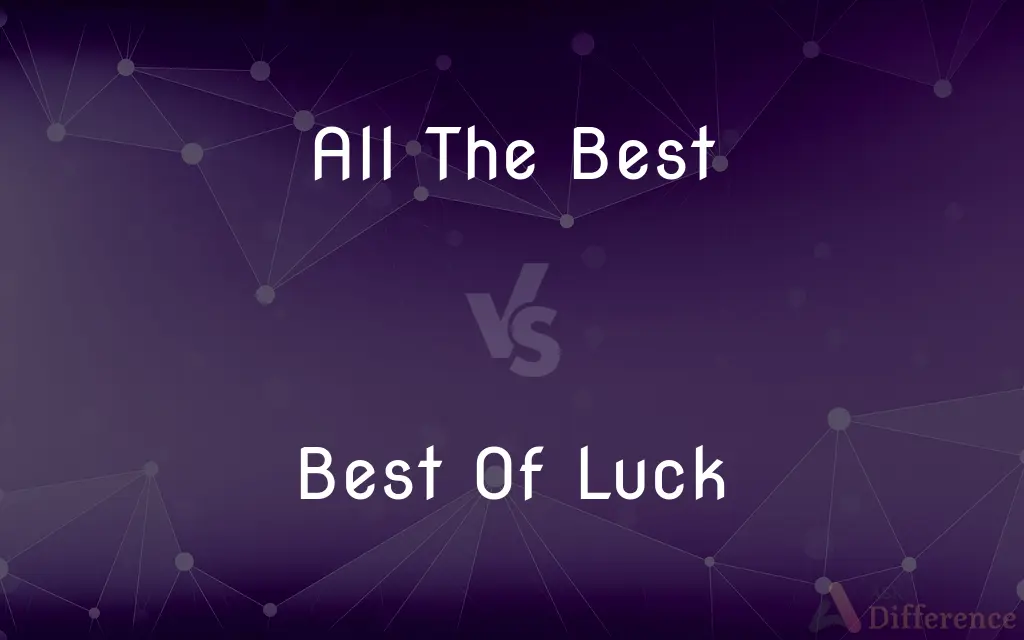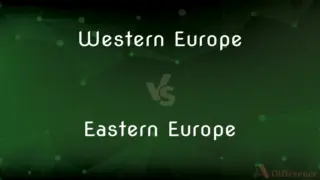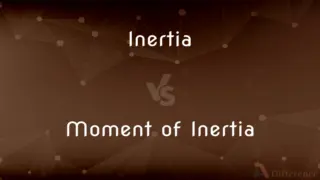All The Best vs. Best Of Luck — What's the Difference?
By Tayyaba Rehman — Published on October 31, 2023
All The Best is a wish for comprehensive success. Best Of Luck is a specific wish for favorable fortune.

Difference Between All The Best and Best Of Luck
Table of Contents
ADVERTISEMENT
Key Differences
All The Best" is a well-wishing phrase often employed to express comprehensive good wishes toward someone's future endeavors. This term encompasses all aspects of someone’s venture, hoping everything goes well in every regard. It doesn't merely pertain to luck but extends to all facets of a situation or endeavor, including effort, strategy, and execution, enveloping a wide array of possible factors that might contribute to the success of the endeavor.
On the contrary, "Best Of Luck" is a phrase particularly pointed toward luck, heavily implying that the speaker is wishing the listener favorable fortune in their upcoming endeavors. This does not disregard the effort or strategy involved but places a conspicuous emphasis on the favorable circumstances or luck, that might help propel the individual toward their desired outcome, signifying a wish that luck or chance circumstances align in the individual’s favor.
When employing "All The Best," one extends a wish that could also imply continued success over a period of time. It symbolizes a holistic approach towards good wishes and tends to be slightly more formal in its connotations. This phrase, while applicable in many of the same contexts, often finds its place in both casual and formal communications, slightly leaning towards comprehensive positivity in both outcome and process.
Alternatively, "Best Of Luck" specifically leans towards the unpredictability and chance involved in the endeavor. It is a phrase that can be perceived as slightly more casual and immediate, often used in the context where an outcome is unknown and relies, to some degree, on factors outside of the individual's control. It implies a degree of uncertainty where luck plays a pivotal role in determining the outcome.
To distill, while both "All The Best" and "Best Of Luck" function as phrases to wish someone well, their subtle differences rest in the breadth and focus of the wishes. "All The Best" typically signifies a broad, comprehensive wish for success, while "Best Of Luck" indicates a more specific, luck-oriented wish, each carrying their nuanced appropriateness dependent on the context of the situation and relationship between communicators.
ADVERTISEMENT
Comparison Chart
Focus of Wish
Comprehensive success.
Favorable fortune.
Implied Formality
Slightly more formal.
Slightly more casual.
Scope of the Wish
Encompasses all aspects of an endeavor.
Primarily pertains to luck and chance.
Usage in Communication
Suitable for both casual and formal communication.
Generally used in casual communication.
Connotation
Indicates positivity towards outcome and process.
Indicates hope for favorable circumstances or outcomes.
Compare with Definitions
All The Best
A hope that every element of an endeavor goes well.
May you have All The Best in your new business!
Best Of Luck
A wish that luck is on someone’s side.
Best Of Luck with your athletic competition!
All The Best
A positive and broad wish towards someone's efforts.
All The Best with your upcoming presentation!
Best Of Luck
Hoping that fortune favors someone's efforts.
Best Of Luck in all your upcoming matches!
All The Best
A comprehensive wish for favorable results.
All The Best on your journey towards health!
Best Of Luck
A wish for favorable fortune in an undertaking.
Best Of Luck in your interview tomorrow!
All The Best
A wish for success in every aspect.
All The Best for your future endeavors!
Best Of Luck
An expression hoping for good luck.
Giving you my Best Of Luck for your test!
All The Best
An expression hoping for positive outcomes in all regards.
Sending you All The Best for your examination!
Best Of Luck
A desire for someone’s favorable circumstances.
Best Of Luck navigating through your challenges!
Common Curiosities
What does “Best Of Luck” convey?
"Best Of Luck" conveys a wish for favorable fortune or luck in a specific situation.
Does “All The Best” imply only luck?
No, “All The Best” wishes success in all aspects, not just luck.
What is meant by “All The Best”?
"All The Best" is a phrase wishing someone success in every aspect of an endeavor.
Is “Best Of Luck” casual?
Generally, “Best Of Luck” is considered slightly more casual than "All The Best."
Can “All The Best” be used in formal communication?
Yes, “All The Best” is suitable for both formal and informal communication.
Is “Best Of Luck” specific to wishing luck?
Yes, “Best Of Luck” specifically focuses on wishing someone good fortune.
Does “All The Best” have a formal tone?
It can have a slightly formal tone but is versatile in usage.
Can “All The Best” be used in professional settings?
Yes, "All The Best" can be used in professional and personal settings alike.
Can “All The Best” be used to wish someone long-term success?
Yes, “All The Best” can be used to wish success over a longer duration or endeavors.
Is “Best Of Luck” used for immediate or upcoming events?
Typically, “Best Of Luck” is used for immediate or upcoming events.
How does “Best Of Luck” differ from just “Good Luck”?
“Best Of Luck” may imply a stronger or more heartfelt wish than “Good Luck.”
Are “All The Best” and “Best Of Luck” interchangeable?
While similar, they have nuanced differences and may not always be interchangeable.
Is “Best Of Luck” appropriate for serious situations?
It depends on context, but generally, it can be used if wishing luck is deemed appropriate.
Share Your Discovery

Previous Comparison
Western Europe vs. Eastern Europe
Next Comparison
Inertia vs. Moment of InertiaAuthor Spotlight
Written by
Tayyaba RehmanTayyaba Rehman is a distinguished writer, currently serving as a primary contributor to askdifference.com. As a researcher in semantics and etymology, Tayyaba's passion for the complexity of languages and their distinctions has found a perfect home on the platform. Tayyaba delves into the intricacies of language, distinguishing between commonly confused words and phrases, thereby providing clarity for readers worldwide.












































